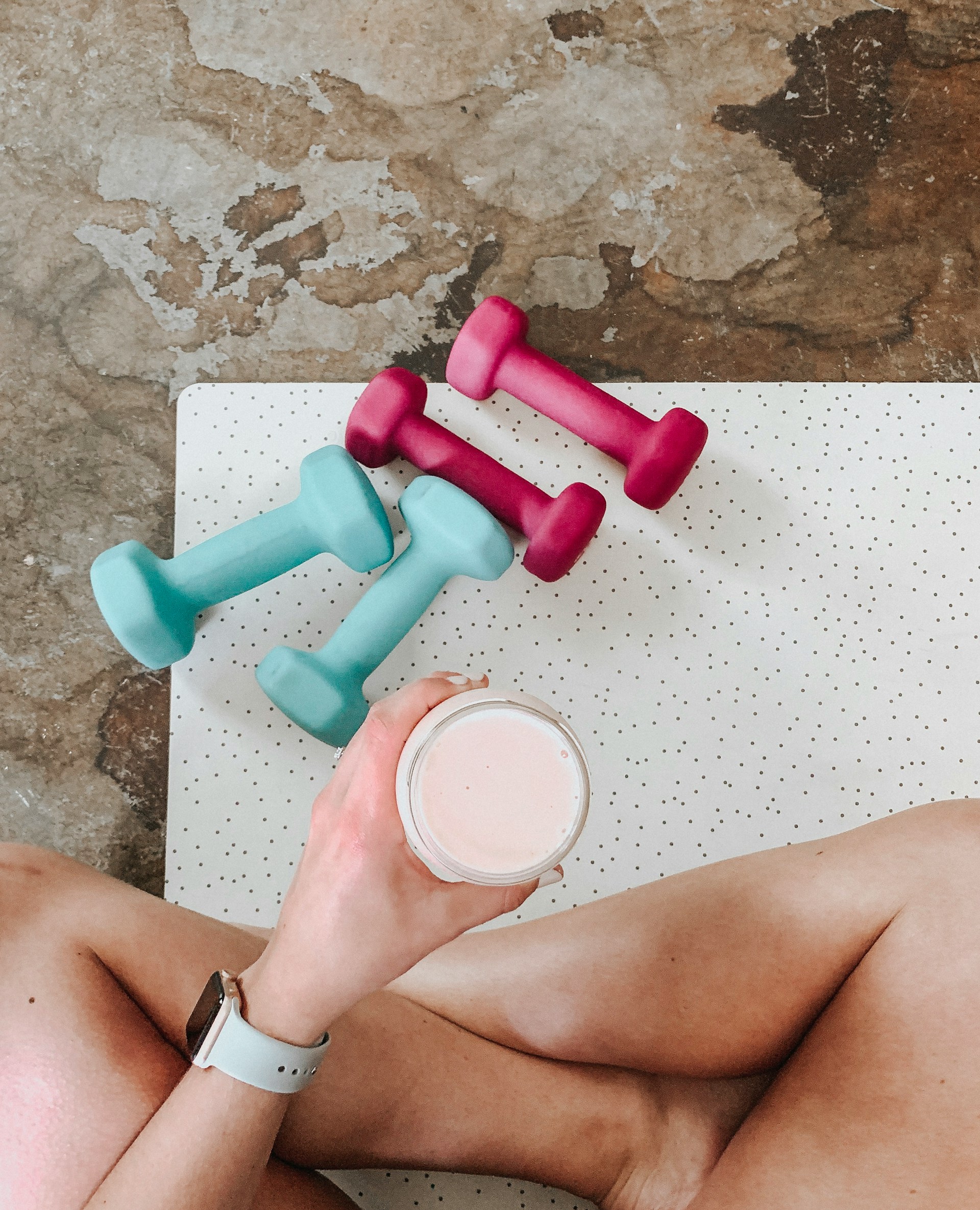Menopause often feels like your body is rewriting the rules - muscles shrink despite your best efforts, bones become more fragile, fatigue lingers, and brain fog creeps in. But, *psst*, there’s another science-backed nutrient that deserves a closer look: creatine.
Most people associate creatine with male athletes and bodybuilding competitions. The truth? Women in perimenopause and menopause may stand to benefit just as much - if not more - from this well-studied supplement.
Rethinking Creatine: Not Just for the Gym
Creatine is a naturally occurring compound your body makes and stores in muscles and the brain. Its primary job is to help produce adenosine triphosphate (ATP), the molecule responsible for fueling your muscles and your brain.
Here’s the catch: the small amount your body makes, plus what you get from foods like meat and fish, often isn’t enough to fully support muscle preservation, cognitive health, and energy production, especially as hormones fluctuate in midlife.
Why Creatine Matters More Than Ever in Midlife
Preserving Lean Muscle
Menopause naturally accelerates muscle loss due to declining estrogen levels. Less muscle means reduced strength and a slower metabolism. Supplementing with creatine helps your muscles hold onto energy, making resistance training more effective for maintaining strength and mobility.
Research confirms this: A 2021 meta‑analysis in Nutrients found that postmenopausal women taking creatine alongside strength training gained significantly more muscle strength in upper and lower body than those who skipped it. (1)
Supporting Bone Health from a Different Angle
Most bone health advice focuses on calcium and vitamin D. Creatine tackles the issue indirectly by strengthening muscles. Stronger muscles apply healthy stress to bones, stimulating them to stay denser and more resilient.
Studies have found that women using creatine while doing resistance exercise improved bone density markers, which is an important step toward reducing fracture risk. (2)
Helping Clear Brain Fog
Memory lapses and trouble focusing are frustratingly common during hormonal transitions. The brain runs on energy just like muscles do, and creatine provides an energy reserve that supports cognitive function.
In older adults, including women navigating hormonal changes, creatine supplementation has been shown to enhance mental clarity, focus, and memory. (3) (Sign me up!)
Fighting Fatigue and Low Energy
One of the more draining aspects of menopause is a persistent sense of fatigue. Since creatine boosts ATP production, it can provide more energy for physical activity and daily life without relying on extra caffeine or sugar. (4)
Improving Metabolism and Body Composition
As hormones shift, body composition often changes, especially with increased fat around the midsection. Creatine helps you build and maintain muscle, which naturally increases your resting metabolism, allowing your body to burn more calories throughout the day. (5)
How to Use Creatine Effectively
- Dosage: 5 grams daily is a safe and effective maintenance amount (as always, consult your healthcare provider for personal guidance!). For cognitive and bone support, some studies suggest 8–10 grams daily split into two doses.
- Consistency: Creatine builds up in the body over several weeks. Daily use is key for results.
- Timing: It can be taken at any time, though pairing it with a post-workout meal may enhance absorption.
- Training: Creatine works best alongside strength training such as squats, lunges, and resistance band exercises.
Addressing Common Misconceptions
- It does not cause kidney damage when taken as recommended.
- It will not make you bulky or cause weight gain from fat.
- Any initial water retention is temporary and occurs inside muscles, not under the skin.
- It is not a steroid and has been shown safe for women in long-term studies.
Creatine monohydrate remains the most effective and studied form. Choosing a high-quality, additive-free product ensures purity and proper absorption. You can find great professional grade options (with my provider discount!) here: Fullscript - Creatine Monohydrate
The Takeaway
Creatine is one of the most extensively researched supplements available, and its benefits extend well beyond athletic performance. For women in perimenopause and menopause, it offers a practical, affordable way to protect muscle mass, strengthen bones, boost mental clarity, reduce fatigue, and support a healthy metabolism.
Midlife brings enough challenges - losing strength, energy, and confidence doesn’t have to be one of them. A small daily scoop of creatine, combined with strength training, can help you feel capable, clear-headed, and resilient for years to come. Think of it as future-proofing your muscles, bones, and brain… one small scoop at a time.
Remember: While creatine is generally safe, it's essential to listen to your body and discontinue use if you experience any adverse effects. Always discuss supplement use with your medical provider.
Refrences:
- https://pubmed.ncbi.nlm.nih.gov/34836013/
- https://pubmed.ncbi.nlm.nih.gov/34107512/
- https://pubmed.ncbi.nlm.nih.gov/39070254/
- https://www.tandfonline.com/doi/full/10.1186/s12970-017-0173-z
- https://www.mdpi.com/2072-6643/15/20/4343








